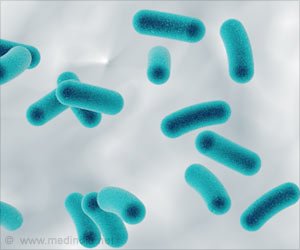New Drug Delivery Method Replaces Injections With Medications

Previous work from the Beeton lab had shown that a peptide, or short protein, derived from sea anemone toxin effectively and safely reduces disease severity in rat models of rheumatoid arthritis and patients with plaque psoriasis. “However, peptide treatment requires repeated injections, reducing patient compliance, and direct oral delivery of the peptide has low efficacy,” Beeton said.
Beeton joined forces with Dr. Robert A. Britton, professor of molecular virology and microbiology and member of the Dan L Duncan Comprehensive Cancer Center at Baylor. The Britton lab has developed the tools and expertise to genetically modify probiotic bacteria to produce and release compounds. In the current study, the team bioengineered the probiotic L. reuteri to secrete peptide ShK-235 derived from sea anemone toxin.
Bioengineered Probiotic for the Oral Delivery of Peptide to Treat Arthritis
They chose L. reuteri because these bacteria are indigenous to human and other animal guts. It is one of the lactic acid bacteria groups that has long been used as a cell factory in the food industry and is recognized as safe by the U.S. Food and Drug Administration. L. reuteri has an excellent safety profile in infants, children, adults and even in an immunosuppressed population.
Advertisement
“The results are encouraging,” Beeton said. “Daily delivery of these peptide-secreting bacteria, called LrS235, dramatically reduced clinical signs of disease, including joint inflammation, cartilage destruction and bone damage in an animal model of rheumatoid arthritis.”
The researchers followed bacteria LrS235 and the peptide ShK-235 it secretes inside the animal model. They found that after feeding rats live LrS235 that release ShK-235, they could detect ShK-235 into the blood circulation.
“Another reason we chose L. reuteri is that these bacteria do not remain in the gut permanently. They are removed as the gut regularly renews its inner surface layer to which the bacteria attach,” Beeton said. “This opens the possibility for regulating treatment administration.”
More research is needed to bring this novel drug delivery system into the clinic, but the researchers anticipate that it could make treatment easier for patients in the future. “These bacteria could be stored in capsules that can be kept on the kitchen counter,” Beeton said. “A patient could take the capsules when on vacation without the need of refrigeration or carrying needles and continue treatment without the inconvenience of daily injections.”
Source: Eurekalert
Source link
#Drug #Delivery #Method #Replaces #Injections #Medications



